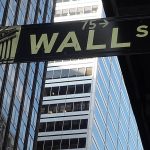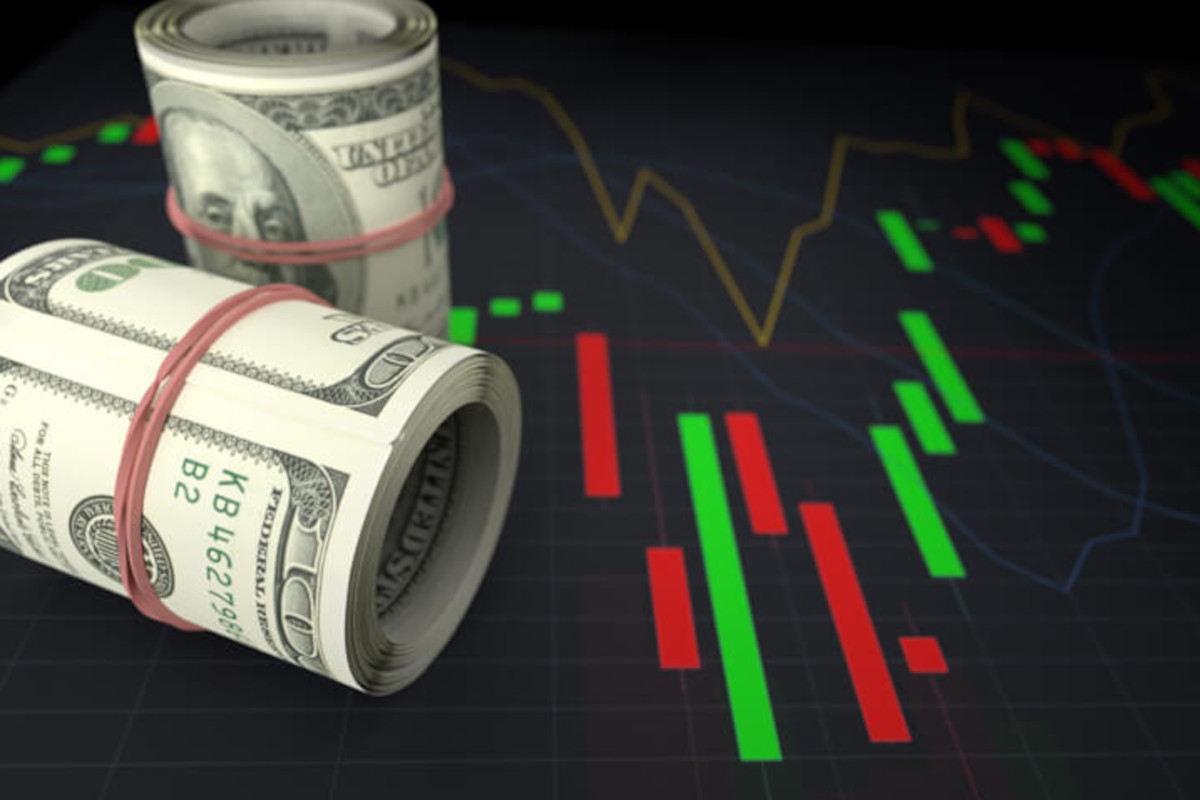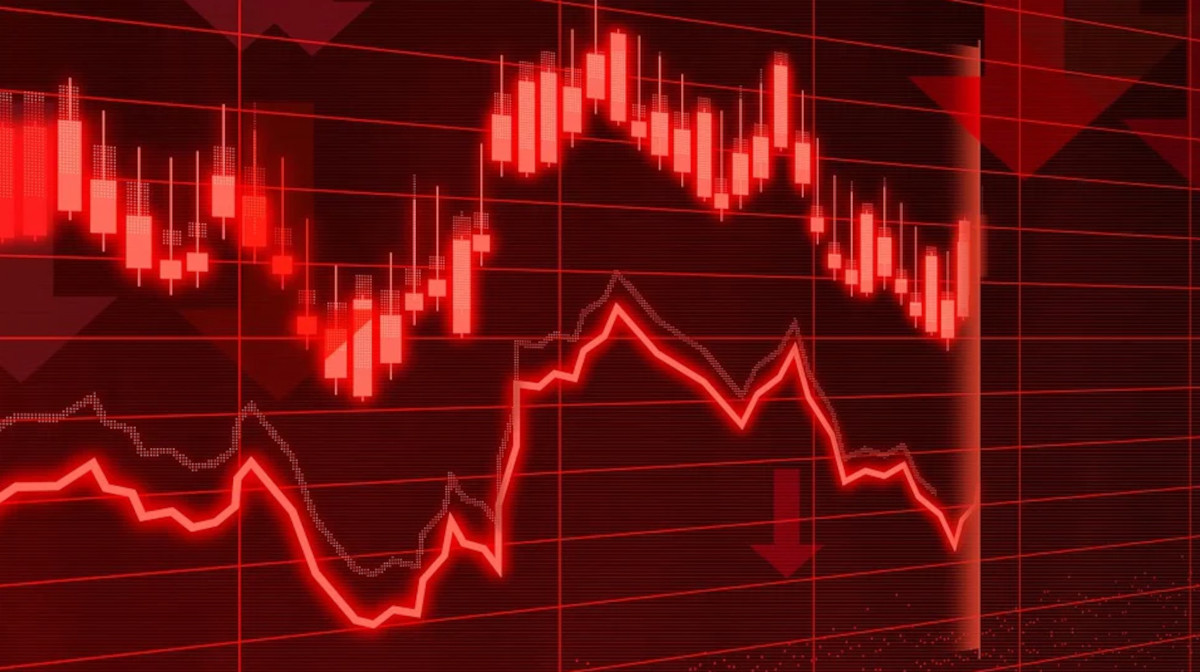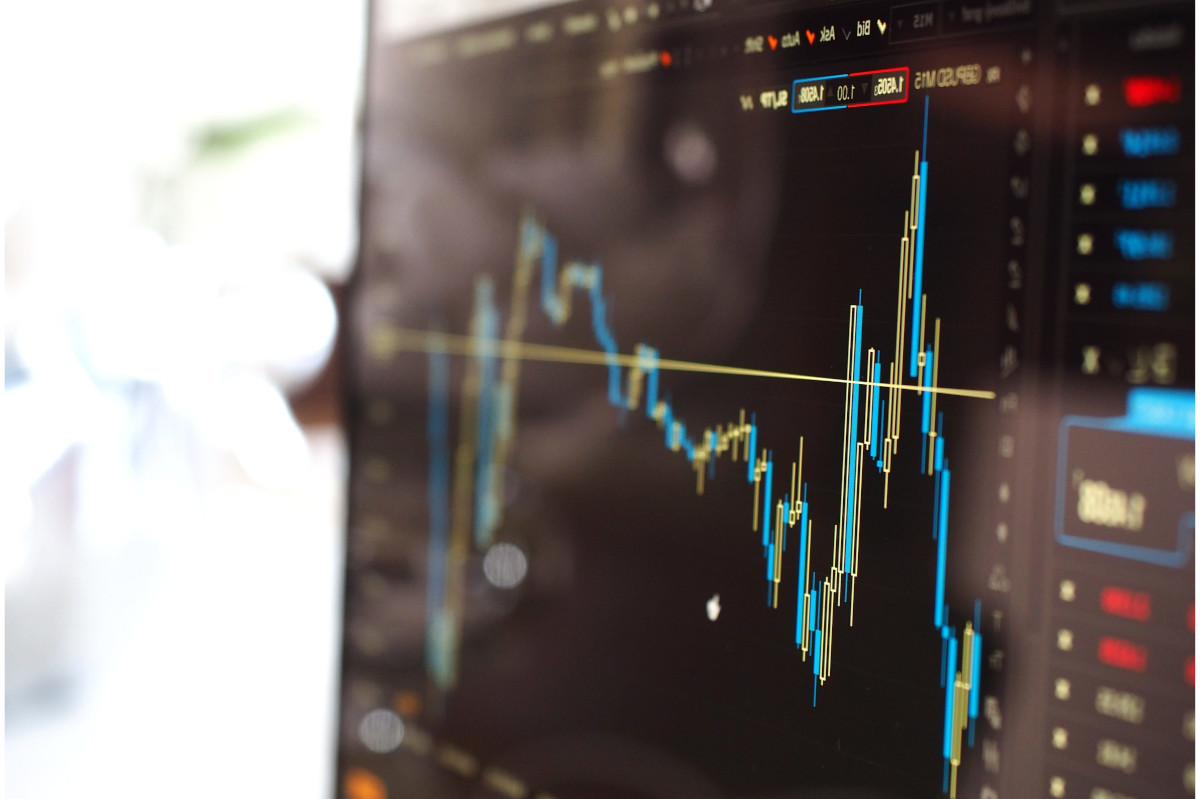(VIANEWS) – Barnes Group (B), Rand Capital Corporation (RAND), Corning Incorporated (GLW) are the highest payout ratio stocks on this list.
Here’s the data we’ve collected of stocks with a high payout ratio at the moment. The payout ratio in itself isn’t a promise of a future good investment but it’s an indicator of whether dividends are being paid and how the company chooses to distribute them.
When investigating a potential investment, the dividend payout ratio is a good statistic to know so here is a list of some companies with an above 30% payout ratio.
1. Barnes Group (B)
533.33% Payout Ratio
Barnes Group Inc. provides engineered products, industrial technologies, and solutions in the United States and internationally. It operates in two segments: Industrial and Aerospace. The Industrial segment offers precision components, products, and systems used by various customers in end-markets, such as transportation, industrial equipment, automation, personal care, packaging, electronics, and medical devices. This segment also designs and manufactures hot runner systems, mold cavity sensors and process control systems, and precision high cavitation mold assemblies for injection molding applications; provides force and motion control solutions for various metal forming and other industrial markets; and designs and develops robotic grippers, end-of-arm tooling systems, sensors, and other automation components for intelligent robotic handling solutions and industrial automation applications. In addition, it manufactures and supplies precision mechanical products, including mechanical springs, and high-precision punched and fine-blanked components used in transportation and industrial applications, including mechanical springs, and high-precision punched and fine-blanked components. This segment sells its products primarily through its direct sales force and distribution channels. The Aerospace segment produces fabricated and precision machined components and assemblies for turbine engines; and nacelles and structures for commercial and defense-related aircraft. It also provides aircraft engine component maintenance, repair, and overhaul services for turbine engine manufacturers, commercial airlines, and defense market; and manufactures and delivers aerospace aftermarket spare parts. This segment serves original equipment manufacturing industry. The company was founded in 1857 and is based in Bristol, Connecticut.
Earnings Per Share
As for profitability, Barnes Group has a trailing twelve months EPS of $0.13.
PE Ratio
Barnes Group has a trailing twelve months price to earnings ratio of 315.38. Meaning, the purchaser of the share is investing $315.38 for every dollar of annual earnings.
The company’s return on equity, which measures the profitability of a business relative to shareholder’s equity, for the twelve trailing months is 0.44%.
Growth Estimates Quarters
The company’s growth estimates for the ongoing quarter is a negative 3.6% and positive 20.4% for the next.
Earnings Before Interest, Taxes, Depreciation, and Amortization
Barnes Group’s EBITDA is 2.07.
Revenue Growth
Year-on-year quarterly revenue growth grew by 7.4%, now sitting on 1.28B for the twelve trailing months.
2. Rand Capital Corporation (RAND)
106.06% Payout Ratio
Rand Capital Corporation is a business development company and regulated investment company specializing in private equity investments. The firm prefers to make investments through equity or debt instruments in lower middle market and in small to medium-sized privately held companies. It generally lends to more mature companies. The firm does not prefer to invest in real estate sector. It invests in companies that are engaged in the exploitation of new or unique products, technologies, or services. The firm invests in healthcare, consumer products, manufacturing, software, and professional services. It seeks to invest in companies based in the Western and Upstate New York region and its surrounding states with focus on Buffalo and Niagara region. The firm may invest in region within three to five hour drives from Western New York including Canada. It typically invests between $0.5 million and $1.5 million and the total investment in rounds is between $1 million and $5 million. The firm seeks to invest up to maximum of $3 million total per company as part of follow-on investments. It invest in startups and companies having annual revenue up to $10 million. It invest companies having EBITDA up to $5 million. The firm Follow-on investment(s) up to a targeted maximum of $2 million to $3 million total per company. The firm frequently participate three investment round. The firm seeks to be a lead investor in companies within its geographical area and participates in syndicate/co-invest with other investors outside it. It prefers to invest in businesses that are unique or possess proprietary right. The firm prefers to be a minority investor and seeks to take a Board seat in its portfolio companies. It typically holds its investments for a period of five to seven years. Rand Capital Corporation was founded in 1969 and is based in Buffalo, New York.
Earnings Per Share
As for profitability, Rand Capital Corporation has a trailing twelve months EPS of $0.66.
PE Ratio
Rand Capital Corporation has a trailing twelve months price to earnings ratio of 21.12. Meaning, the purchaser of the share is investing $21.12 for every dollar of annual earnings.
The company’s return on equity, which measures the profitability of a business relative to shareholder’s equity, for the twelve trailing months is 2.85%.
Volume
Today’s last reported volume for Rand Capital Corporation is 48 which is 92.28% below its average volume of 622.
Yearly Top and Bottom Value
Rand Capital Corporation’s stock is valued at $13.94 at 02:23 EST, way below its 52-week high of $18.80 and way above its 52-week low of $12.62.
Revenue Growth
Year-on-year quarterly revenue growth grew by 64.6%, now sitting on 6.49M for the twelve trailing months.
Dividend Yield
As maintained by Morningstar, Inc., the next dividend payment is on May 29, 2023, the estimated forward annual dividend rate is 1 and the estimated forward annual dividend yield is 7.54%.
3. Corning Incorporated (GLW)
102.83% Payout Ratio
Corning Incorporated engages in the display technologies, optical communications, environmental technologies, specialty materials, and life sciences businesses worldwide. The company's Display Technologies segment offers glass substrates for flat panel displays, including liquid crystal displays and organic light-emitting diodes that are used in televisions, notebook computers, desktop monitors, tablets, and handheld devices. Its Optical Communications segment provides optical fibers and cables; and hardware and equipment products, such as cable assemblies, fiber optic hardware and connectors, optical components and couplers, closures, network interface devices, and other accessories for the telecommunications industry, businesses, governments, and individuals. The company's Specialty Materials segment manufactures products that offer material formulations for glass, glass ceramics, crystals, precision metrology instruments, and software, as well as glass wafers and substrates, tinted sunglasses, and radiation shielding products for various markets comprising mobile consumer electronics, semiconductor equipment optics and consumables, aerospace and defense optics, radiation shielding products, sunglasses, and telecommunications components. Its Environmental Technologies segment provides ceramic substrates and filter products for emissions control in mobile, gasoline, and diesel applications. The company's Life Sciences segment offers laboratory products, including consumables, such as plastic vessels, liquid handling plastics, specialty surfaces, cell culture media, and serum, as well as general labware, and glassware and equipment under the Corning, Falcon, Pyrex, and Axygen brands. Corning Incorporated was formerly known as Corning Glass Works and changed its name to Corning Incorporated in April 1989. The company was founded in 1851 and is headquartered in Corning, New York.
Earnings Per Share
As for profitability, Corning Incorporated has a trailing twelve months EPS of $1.06.
PE Ratio
Corning Incorporated has a trailing twelve months price to earnings ratio of 33.27. Meaning, the purchaser of the share is investing $33.27 for every dollar of annual earnings.
The company’s return on equity, which measures the profitability of a business relative to shareholder’s equity, for the twelve trailing months is 7.84%.
Dividend Yield
As claimed by Morningstar, Inc., the next dividend payment is on May 29, 2023, the estimated forward annual dividend rate is 1.12 and the estimated forward annual dividend yield is 3.51%.
Earnings Before Interest, Taxes, Depreciation, and Amortization
Corning Incorporated’s EBITDA is 2.52.
Growth Estimates Quarters
The company’s growth estimates for the ongoing quarter is a negative 19.3% and positive 3.9% for the next.
Moving Average
Corning Incorporated’s value is higher than its 50-day moving average of $32.57 and above its 200-day moving average of $33.18.
4. Toronto Dominion Bank (TD)
43.89% Payout Ratio
The Toronto-Dominion Bank, together with its subsidiaries, provides various financial products and services in Canada, the United States, and internationally. It operates through three segments: Canadian Retail, U.S. Retail, and Wholesale Banking. The company offers personal deposits, such as chequing, savings, and investment products; financing, investment, cash management, international trade, and day-to-day banking services to businesses; and financing options to customers at point of sale for automotive and recreational vehicle purchases. It also provides credit cards and payments; real estate secured lending, auto finance, and consumer lending services; point-of-sale payment solutions for large and small businesses; wealth and asset management products, and advice to retail and institutional clients through direct investing, advice-based, and asset management businesses; and property and casualty insurance, as well as life and health insurance products. The company also provides capital markets, and corporate and investment banking products and services, including underwriting and distribution of new debt and equity issues; advice on strategic acquisitions and divestitures; and trading, funding, and investment services to corporations, governments, and institutions. It offers its products and services under the TD Bank and America's Most Convenient Bank brand names. It has a strategic alliance with Canada Post Corporation. The Toronto-Dominion Bank was founded in 1855 and is headquartered in Toronto, Canada.
Earnings Per Share
As for profitability, Toronto Dominion Bank has a trailing twelve months EPS of $5.92.
PE Ratio
Toronto Dominion Bank has a trailing twelve months price to earnings ratio of 10.35. Meaning, the purchaser of the share is investing $10.35 for every dollar of annual earnings.
The company’s return on equity, which measures the profitability of a business relative to shareholder’s equity, for the twelve trailing months is 14.29%.
Revenue Growth
Year-on-year quarterly revenue growth grew by 2.9%, now sitting on 48.07B for the twelve trailing months.
Volume
Today’s last reported volume for Toronto Dominion Bank is 833766 which is 66.26% below its average volume of 2471230.
Growth Estimates Quarters
The company’s growth estimates for the ongoing quarter is a negative 1.3% and positive 6.5% for the next.
Moving Average
Toronto Dominion Bank’s worth is higher than its 50-day moving average of $60.17 and below its 200-day moving average of $64.21.
5. International Paper Company (IP)
40.84% Payout Ratio
International Paper Company produces renewable fiber-based packaging and pulp products in North America, Latin America, Europe, and North Africa. It operates through Industrial Packaging and Global Cellulose Fibers segment. The company's Industrial Packaging segment manufactures containerboards, including linerboard, medium, whitetop, recycled linerboard, recycled medium, and saturating kraft. Its Global Cellulose Fibers segment provides fluff, market, and specialty pulps that are used in absorbent hygiene products, such as baby diapers, feminine care, adult incontinence, and other non-woven products; tissue and paper products; and non-absorbent end applications, including textiles, filtration, construction material, paints and coatings applications. In addition, it sells its products directly to end users and converters, as well as through agents, resellers, and distributors. The company was founded in 1898 and is headquartered in Memphis, Tennessee.
Earnings Per Share
As for profitability, International Paper Company has a trailing twelve months EPS of $4.53.
PE Ratio
International Paper Company has a trailing twelve months price to earnings ratio of 7.02. Meaning, the purchaser of the share is investing $7.02 for every dollar of annual earnings.
The company’s return on equity, which measures the profitability of a business relative to shareholder’s equity, for the twelve trailing months is 19.05%.
Yearly Top and Bottom Value
International Paper Company’s stock is valued at $31.79 at 02:23 EST, way under its 52-week high of $49.32 and higher than its 52-week low of $30.69.
Revenue Growth
Year-on-year quarterly revenue growth declined by 4.1%, now sitting on 20.94B for the twelve trailing months.
6. MKS Instruments (MKSI)
37.45% Payout Ratio
MKS Instruments, Inc. provides instruments, systems, subsystems, and process control solutions that measure, monitor, deliver, analyze, power, and control critical parameters of manufacturing processes worldwide. Its Vacuum & Analysis segment offers pressure and vacuum control solutions, including direct and indirect pressure measurement; materials delivery solutions comprising flow and valve technologies, as well as integrated pressure measurement and control subsystems, which provide customers with precise control capabilities; power delivery products, such as microwave, power delivery systems, radio frequency matching networks, and metrology products used in providing energy to etching, stripping, and deposition processes; and plasma and reactive gas products. The company's Light & Motion segment offers laser-based systems, such as amplifiers, fiber lasers, diode-pumped solid-state lasers, high-energy pulsed lasers, and tunable lasers; and photonics products comprising optical components, lens assemblies, and vibration isolation solutions, as well as instruments and motion products, such as high-precision motion stages and controls, hexapods, photonics instruments for measurement and analysis, and production equipment for test and measurement. Its Equipment & Solutions segment provides laser-based systems for printed circuit board (PCB) manufacturing, including flexible interconnect PCB processing systems and high-density interconnect solutions for rigid PCB manufacturing and substrate processing, as well as passive component multilayer ceramic capacitor testing. The company serves semiconductor, industrial technologies, life and health sciences, research, and defense markets. It markets and sells its products and services through its direct sales organization, independent distributors, and sales representatives, as well as through its websites and product catalogs. MKS Instruments, Inc. was founded in 1961 and is headquartered in Andover, Massachusetts.
Earnings Per Share
As for profitability, MKS Instruments has a trailing twelve months EPS of $2.35.
PE Ratio
MKS Instruments has a trailing twelve months price to earnings ratio of 44.46. Meaning, the purchaser of the share is investing $44.46 for every dollar of annual earnings.
The company’s return on equity, which measures the profitability of a business relative to shareholder’s equity, for the twelve trailing months is 3.96%.
Earnings Before Interest, Taxes, Depreciation, and Amortization
MKS Instruments’s EBITDA is 3.13.











